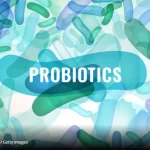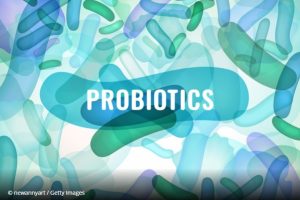According to a study on the metabolic and physiological impact of this diet, published in the prestigious Journal of Clinical Nutrition, several beneficial effects are attributed to the paleo diet: for example, it could help control glucose in people with type II diabetes or even in people without this condition, as explained by our colleague Gabriela Gottau for Vitónica. Among the results, a reduction in blood pressure was also found due to a better elasticity of the arteries and an improvement in the number of lipids in the blood, even without modifying body weight.
This is consistent with studies conducted by the Universities of Bakersfield and Ohio, which also showed the possible benefit in healthy adults, in whom positive changes in body composition such as reduced weight and body fat were observed.
A study by the Indian branch Cochrane, dedicated to reviewing and gathering other research to ensure the quality of the results, claims to have found a beneficial effect of the paleo diet when used in patients with short-term metabolic syndrome, although this review is limited to 159 participants, which is a slightly low number of patients studied to draw strong conclusions.
Another interesting research, carried out by the Swedish Department of Health and Clinical Medicine, shows the benefit of using the paleo diet for two years in older and obese women, which could be an indication of the value of using it in the long term, although it is important to understand that we may not be able to extrapolate the results for all people, but only for obese people.
Has its health value been exaggerated?
As a result of the growing fame of this diet, several experts have delved deeper into its nutritional implications by conducting broader meta-analyses, which we remember are the complete reviews that exist in the scientific world, such as those of Tanis and Carol Fenton, from the University from Calgary, in Canada.
His studies highlight numerous widespread methodological flaws in the vast majority of research on the paleo diet and its impact on metabolic syndrome, which implies that we cannot trust 100% of its results.
For the Royal Australian College of General Practitioners, an article warned that the real problem is that the paleo diet has been attributed exaggerated benefits.
For his part, Dr. Christopher Pitt presented for the Royal Australian College of General Practitioners an article that warned that the real problem is that the paleo diet has been attributed exaggerated benefits when there are still no results as clear as those that its defenders affirm since many of them can be associated to a change of habits, more than to the own diet.
The most important factor that distinguishes a miracle diet from another that is not: adherence
In Engadget
The most important factor that distinguishes a miracle diet from another that is not: adherence
Therefore, a panel of nutritionists and experts doubt that this diet has direct benefits, or, at least, not by itself. What is clear is that increasing the consumption of vegetables and fruits is good for your health. So is reducing your intake of carbohydrates and free sugars. If we combine all this with a healthier habit, doing sports (as was the case in most of the studies observed), the result will be positive, without a doubt.
The latest fad seems to be eating like cavemen and women … yes, really: it’s called a paleo diet. Do you know what the Paleolithic diet is? We explain what it consists of, and the arguments for and against that have ignited the scientific debate in this regard.
Surely you have heard of the paleo diet or Stone Age diet, and it is one of the latest phenomena in nutrition. The Paleolithic diet seems to be on everyone’s lips and is gaining many followers who see this method to improve their health and figure.
The paleo diet is very simple to summarize, but it hides many nuances and has sparked intense debate. It consists of adapting the diet to the foods that our ancestors consumed in Prehistory, that is when agriculture and livestock had not yet been invented, and they had to be hunters and gatherers to be able to eat.
Therefore, this new diet would seek to eat lean beef, fish, fruits, vegetables, nuts, and seeds. On the other hand, dairy products, legumes, and cereals that became the basis of our diet when we became farmers and ranchers are eliminated from all meals.
Scientists measure antimatter
Great mysteries that science still can’t explain
Our planet, life, and the reality surrounding us are full of great mysteries, enigmas that have attracted the curiosity of entire civilizations. And we still don’t have an answer for many of them.
The Stone Age diet is not entirely recent; it emerged in the 70s, designed by physician Walter L. Voegtlin through his book The Stone Age Diet. The success has been enormous; many celebrities have joined it, popularizing it even more.
Proponents of this diet claim that the Stone Age mode of feeding is much more compatible with our genetics, while the shift to agriculture and livestock was so fast and late that it did not allow humans to adapt and is consequence obesity, diabetes, and heart disease, among other ills.
Which foods are allowed and which are not on the paleo diet
Fridge with fruits, vegetables, and other foods
Depositphotos
As we had already said before, the followers of this diet look for foods that were easy to find by the men and women of Prehistory:
Fruits
Vegetables
Nuts and seeds
Lean meats, especially grass-fed or game-fed meats
Fish, especially those high in omega-3 fatty acids, such as salmon, mackerel, and tuna.
Fruit and nut oils, such as olive oil or walnut oilIf you join the paleo diet, those are the foods you should look for in supermarkets, while you should say goodbye to others as common as:
Cereals: wheat, oats, and barley
Legumes: beans, lentils, chickpeas, and peas
Dairy products
Refined sugar
Salt
Potatoes, tomatoes
Highly processed foods in generalArguments for and against the paleo diet
The defenders of this new diet assure that digestion is greatly improved, that weight is easily lost, and that we can eliminate many diseases from society. Some studies defend this diet to eliminate the carbohydrates and refined sugars that are currently very popular in our society. It also promotes stopping the consumption of ultra-processed products, a message that nutritionists have insisted on in recent years.

















Add Comment